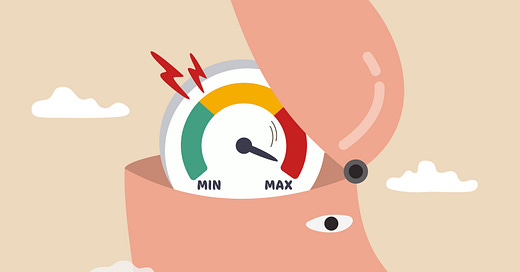Weekly Roundup: How Your Brain Tries to Combat Fatigue, Growing New Brain Cells, Manipulating Brain Waves During Sleep, Boosting Motivation
Weekly roundup of recent research on all things the brain, health, and human behaviour.
When I scour the web and various research sites for these roundups I sometimes come across other older research that is fascinating and this is the case this week. I will not start off with a recent piece of research but an older one on how the brain responds to fatigue during intense cognitive activity.
Your Brain Tries to Compensate Neural Fatigue
This was only a small study with 16 participants but nevertheless fascinating.
These students at the University of Florida underwent a monitored repetitive cognitive task over 160 minutes. That’s 2 hours 40 minutes working straight at the computer!
During this they had EEG measurements of their brains. We know that performance decreases over time and this is more or less linear - basically the longer you are cognitively active the higher the fatigue and the lower the performance.
But the researchers found an interesting compensation mechanism. This seems to be the brain recruiting additional areas and resources the more it gets fatigued.
The region in question is the anterior region of the prefrontal cortex - that is at the back of the prefrontal regions. This region was not involved at the start of the task but as the task progressed its activity ramped up and this seemed to moderate the decrease in performance. The activity in this region peaked between 60 and 100 minutes. But when the activity in this regions declined - presumably also due to fatigue - then performance dropped dramatically.
So, your brain compensates cognitive drop in performances by recruiting different frontal areas but after 100 minutes that’s over. A break before 60 minutes is recommended anyhow but if you don’t make that because you are so heavily involved in a task — which I am sometimes - about 100 minutes is where your performance will likely fall off a cliff.
Glucose Receptors Triggers Birth of New Brain Cells
That may sound like an attractive title and suggest that getting a dose of glucose, sugar, can trigger brain cell growth - it is not that easy. But fascinating and important research.
In fact the study looked at knocking out glucose receptors in neurons- so actually it is not a dose of sugar but avoiding sugar that could help.
Keep reading with a 7-day free trial
Subscribe to leading brains Review to keep reading this post and get 7 days of free access to the full post archives.





